Real Estate
A Brief History of the Extraterrestrial Real Estate Market
Note: I originally wrote this article for about.com, which has since ceased to exist. I recently came across it while going through my files. So I decided to repost it here.In 2013, Maria Angeles Duran began selling plots of land on eBay. That, in itself, wasn't unusual. However, the land she was selling was located on the sun. She offered square-meter plots for the price of 1 euro each. By 2015, she had over 600 buyers, but then eBay pulled the plug on her, saying her auctions violated its "intangible goods" policy.
Further complicating Duran's business plan was the fact that she was in no way a pioneer of solar real estate sales. Long before she came along, numerous other people had already staked a claim to the sun. In fact, for over 75 years there's been a booming market in real estate located throughout the entire universe, with the result that by now every corner of the cosmos has been claimed by multiple would-be owners.
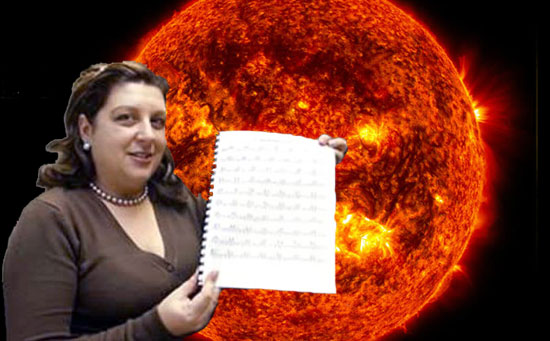
Hot Property: Maria Angeles Duran wants to sell you land on the sun
The First Owner
If priority in this matter means anything (and it probably doesn't) then the entire universe, except for the Earth, is owned by Arthur Dean Lindsay and his descendants, since Lindsay appears to be the first guy who had the idea of laying claim to outer space. In 1937, he filed a deed at the Irwin County Courthouse in Ocilla, Georgia, declaring his ownership of "all of the property known as planets, islands-of-space or other matter." When he informed the press of this, he became widely known as the "man who owns the universe." However, these vast holdings didn't help his finances much. In 1937, it was reported that he was bankrupt.
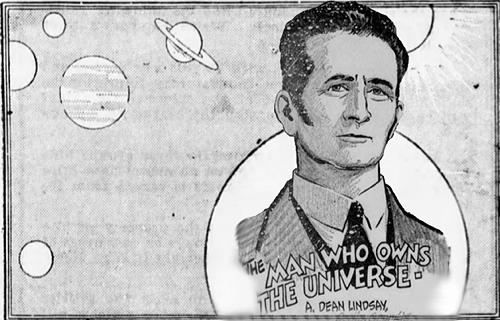
Arthur Dean Lindsay — the man who owned the universe
Homesteading the Moon
In 1948, William Honhold and Robert Eaton of Sewickley, Pennsylvania got the idea of writing to the Bureau of Land Management to request "all rights and privileges to the moon" under the federal homestead act. Interior Secretary Krug actually took the time to respond, saying, "Sovereignty of the United States has never been established over the moon; consequently, land areas, if any, of that planet cannot at this time be regarded as subject to claims or applications under the federal public land laws." Honhold and Eaton planned an appeal to the United Nations.
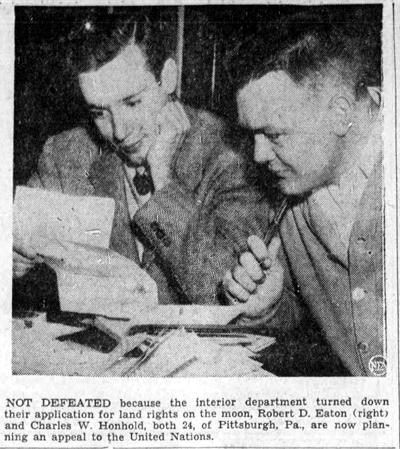
Idaho Falls Post-Register - Apr 21, 1948
More in extended >>
Posted By: Alex - Fri Sep 02, 2022 -
Comments (6)
Category: Real Estate, Scams, Cons, Rip-offs, and General Larceny, Spaceflight, Astronautics, and Astronomy
Italian Hobbit Village

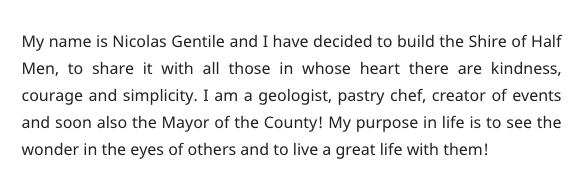
Their home page.
Video below in Italian only.
Super Hobbit from simone zuccarini on Vimeo.
Posted By: Paul - Wed Sep 08, 2021 -
Comments (2)
Category: Domestic, Real Estate, Fantasy, Europe
For Farrah Fanatics
Offered for sale at the height of the Farrah Fawcett mania in the late 1970s — an "authentic deed to a small piece of land that was Farrah Fawcett's early childhood home in Corpus Christi." Only $4.95 each!The ad doesn't say, but the amount of land a purchaser received a deed to was exactly one square centimeter.
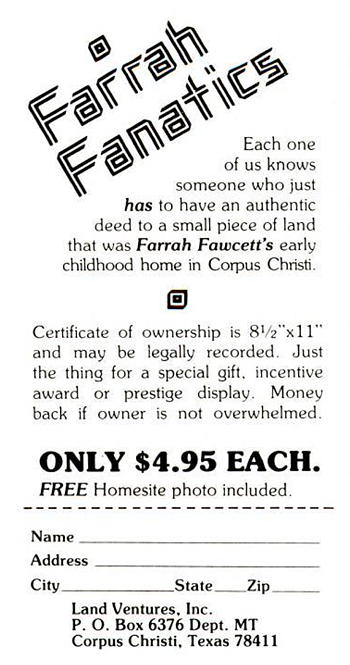
The entrepreneur behind the scheme was Corpus Christi realtor Sam Allen who dreamed up the idea when he learned that a house Farrah had lived in as a child was up for sale.
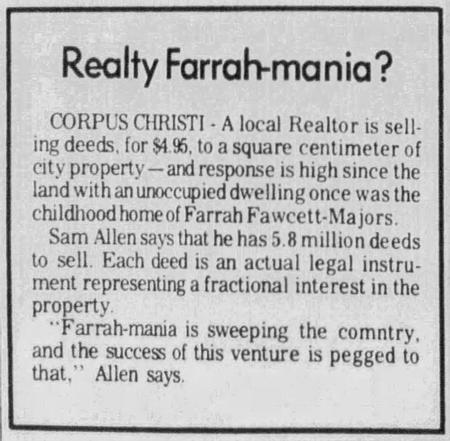
Fort Worth Star-Telegram - Mar 5, 1978
So what was the address of the house? I'm not sure, because Farrah lived in four different houses in Corpus Christi, and Allen didn't reveal which house it was, saying that he didn't want treasure hunters damaging it. Two of those houses have sold in the past ten years.
I don't know enough about real estate law to know how, or if, his sale of all these micro-deeds would have affected if the house could ever be sold again. Could the house be sitting empty to this day because random people still own various square-centimeter pieces of it? I'm guessing not. Any claim to ownership must have lapsed if they didn't pay property taxes.
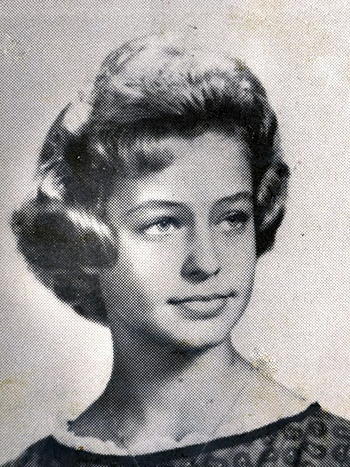
Farrah Fawcett in 8th grade
Other examples of Farrah-Mania we've posted about: Ferrous Faucets and Farrah Fawcett Lookalike Contest Winners.
Posted By: Alex - Fri Sep 18, 2020 -
Comments (5)
Category: Celebrities, Real Estate, 1970s
The City of Napoleon, Washington State
Today, Chetlo Harbor in Washington State looks pretty much like the picture below, taken from the site of the Chetlo Harbor Shellfish Company.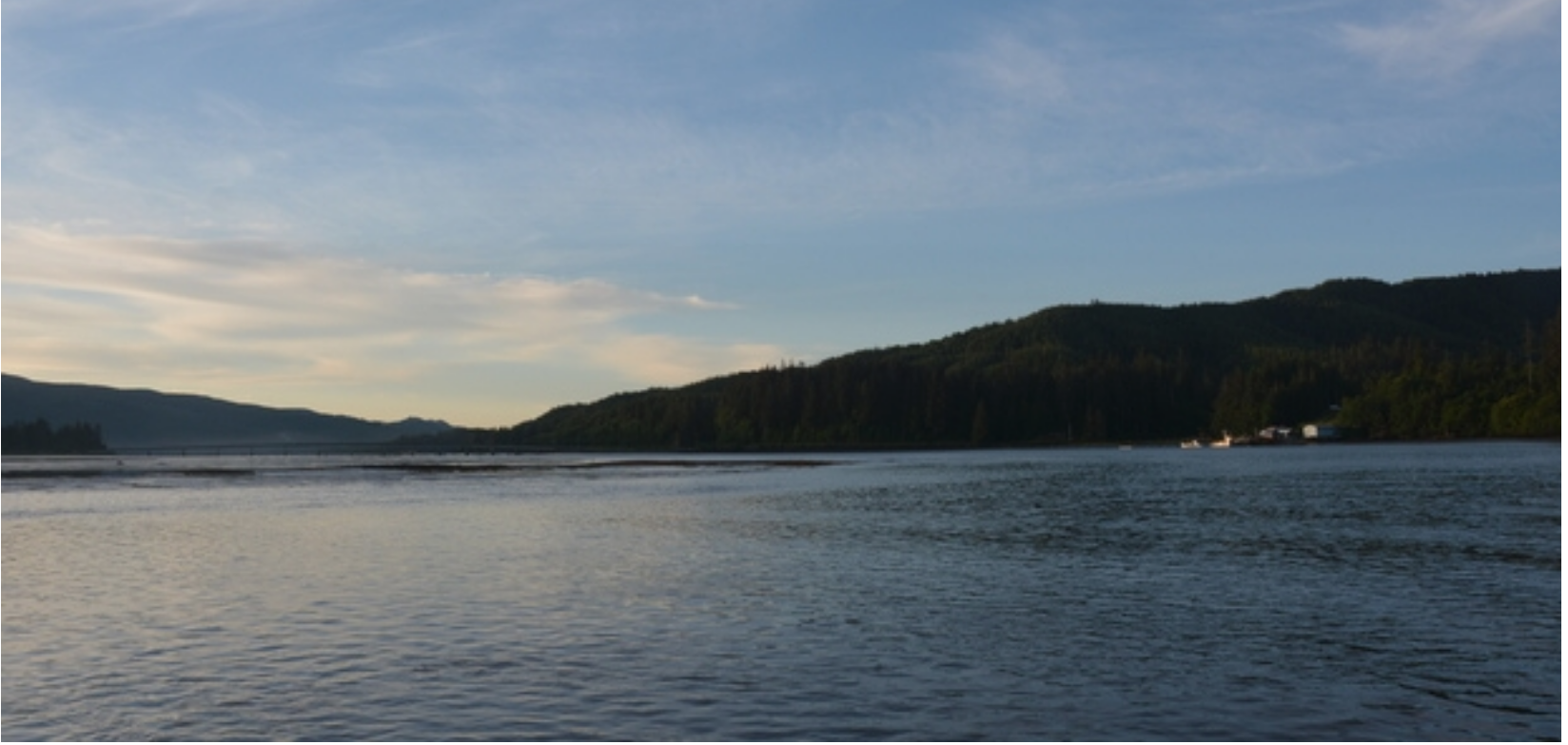
But in 1910, the location was going to be Napolean, the biggest port in the world!
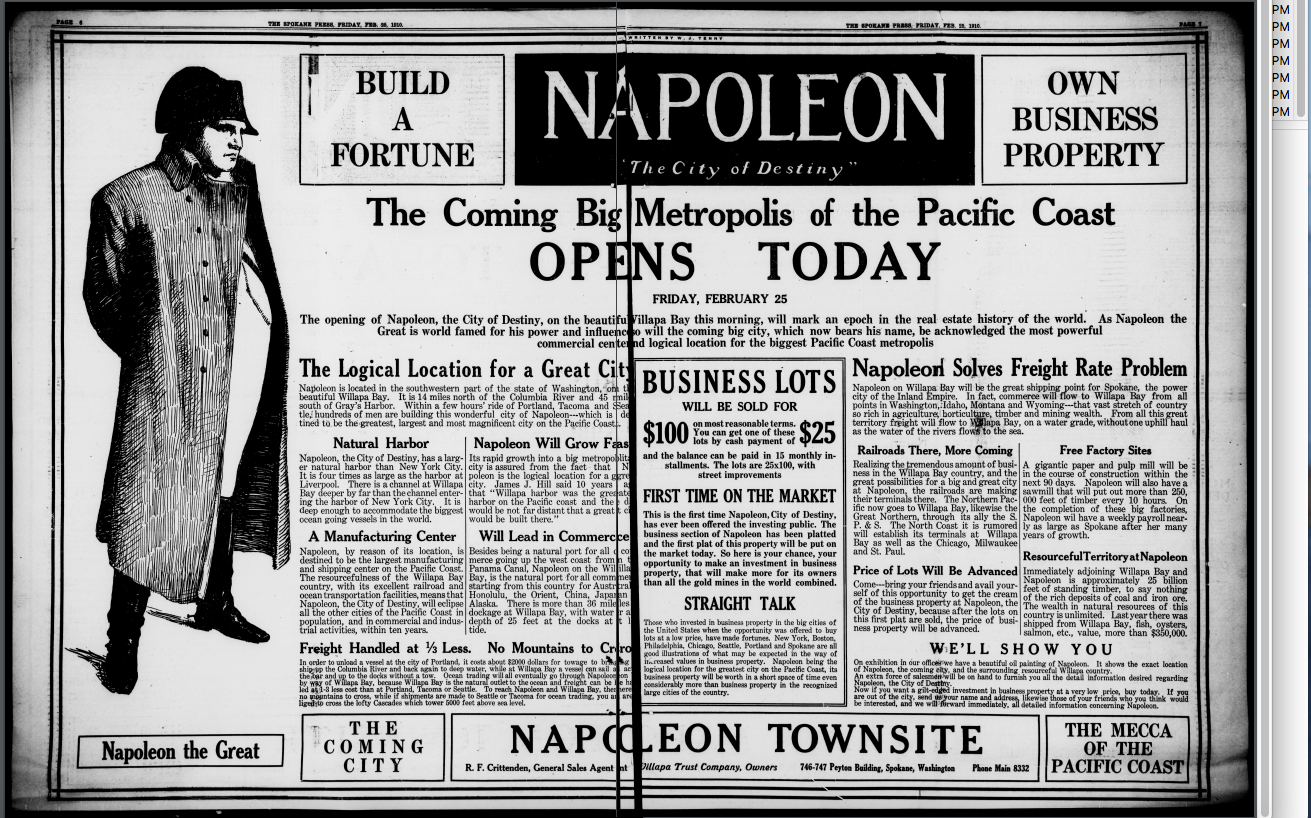
Source for ad. You can blow up the text to readable size there.
Posted By: Paul - Wed Aug 14, 2019 -
Comments (4)
Category: Frauds, Cons and Scams, Oceans and Maritime Pursuits, Real Estate, Regionalism, 1910s
The Dutch Mountain
In July 2011, the Dutch journalist Thijs Zonneveld wrote a column in which he proposed that a mountain be built in the Netherlands. He meant the idea as a joke, but people liked it so much that a grassroots movement formed in support of the project.Zonneveld's idea was for the mountain to be 1.2 miles high, and 3.1 miles wide. For which reason, it soon became apparent that a solid mountain wouldn't work. It would be massively expensive, and its weight might lead to earthquakes. But a hollow mountain, that was a definite maybe...
Unfortunately it seems like people have now lost interest in the mountain project. Its website has disappeared, but is still viewable via the Wayback Machine.
More info: wikipedia, reuters.com
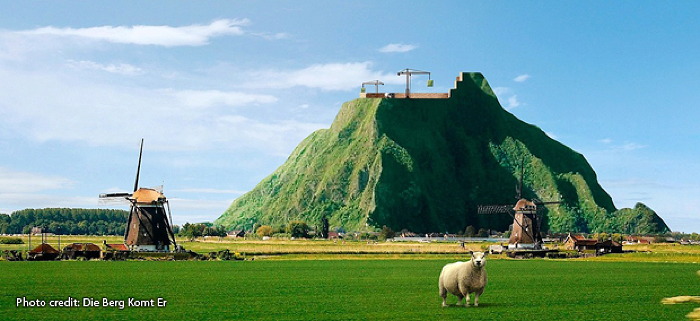

Posted By: Alex - Tue Apr 10, 2018 -
Comments (3)
Category: Architecture, Real Estate, Europe
Emperor and Empress of Streeterville
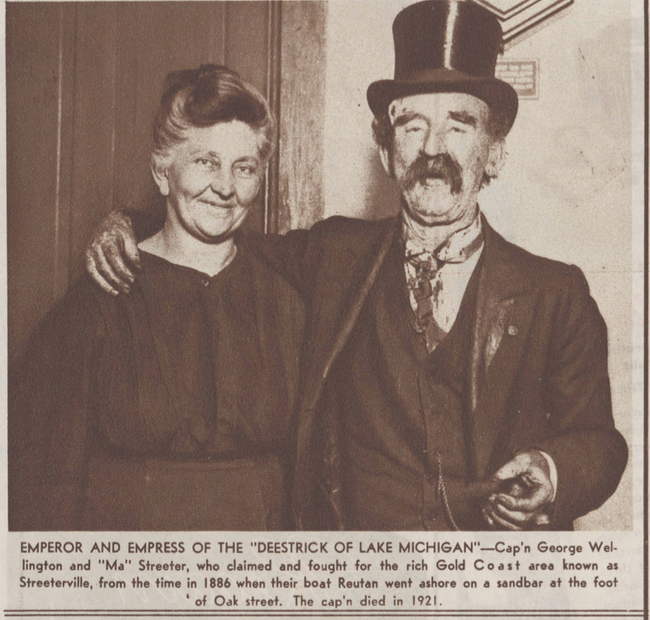
Once upon a time, this couple claimed to own a large chunk of Chicago.
Original story here.
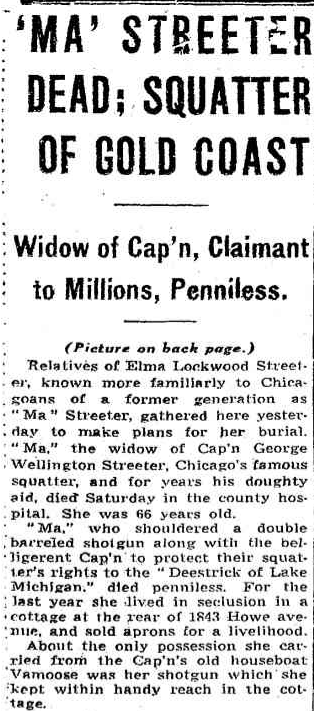
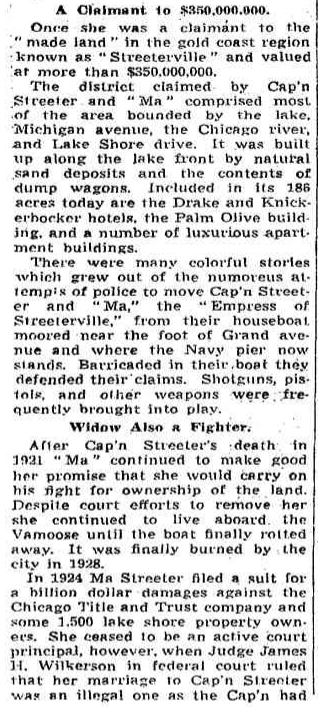
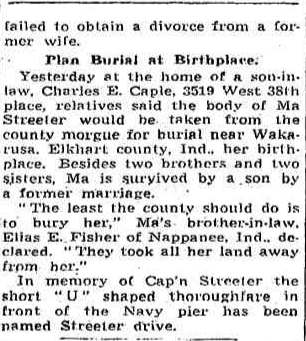
Posted By: Paul - Mon Jun 05, 2017 -
Comments (2)
Category: Eccentrics, Real Estate, 1920s, 1930s
Homes for the deaf
Nov 1994: During a staff meeting, Toledo mayor Carty Finkbeiner offered a creative solution to the problem of homeowners bothered by airport noise. They should just sell their houses to deaf people. A few days later he offered a tearful apology, insisting that he had simply said it was "an interesting idea."The reality, of course, is that they sell to people willing to live with noise in exchange for getting a cheap house. I know that 'cause it's the trade-off I accepted when I bought my house (road noise, not airport noise).
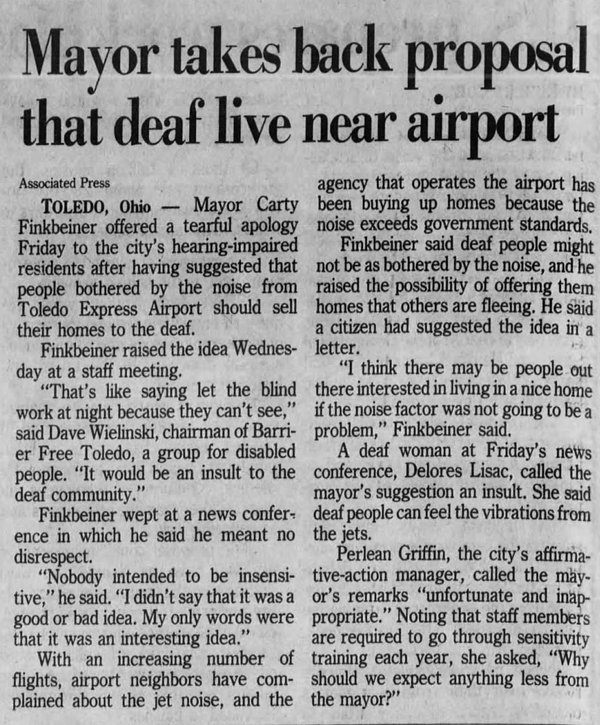
Detroit Free Press - Nov 5, 1994
Posted By: Alex - Wed Nov 23, 2016 -
Comments (5)
Category: Real Estate, 1990s
Owning One Inch of the Yukon
Back in 1955, the marketing execs for Quaker Puffed Rice and Puffed Wheat came up with an ingenious way to sell breakfast cereal. They bought 19.11 acres of land on the Yukon River in Canada. Then they divided up the land into 21 million square-inch plots and gave away deeds for these 1-inch plots inside the cereal boxes, which flew off the shelves.Over at creators.com, Malcolm Berko tells what happened next:
Quaker Oats never paid taxes on the Yukon land, so in 1965 the Canadian government reclaimed it. Which means that anyone who still has one of those land deeds no longer has any claim to the tiny plot of land. However, the deeds themselves have appreciated considerably in value as collector's items.
I've previously posted about a similar publicity stunt: when MGM gave away, in 1947, 1-acre plots of New Mexico desert in order to promote the movie The Sea of Grass.
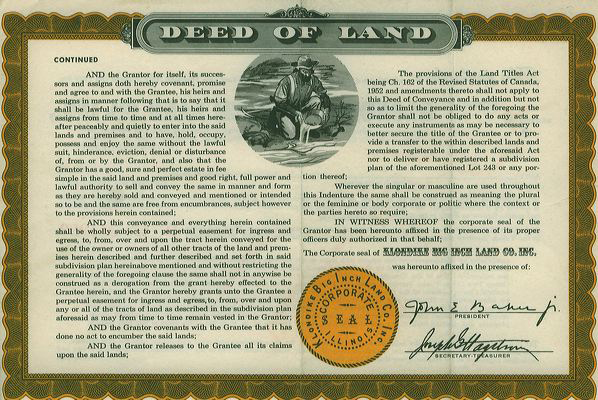
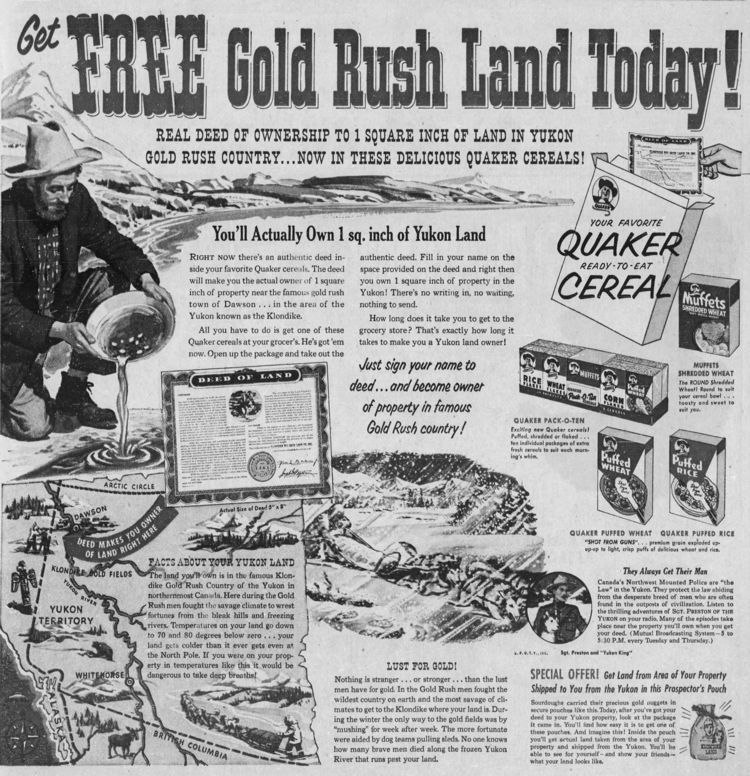
Posted By: Alex - Sat May 28, 2016 -
Comments (5)
Category: Real Estate, 1950s
Kayser the Spy
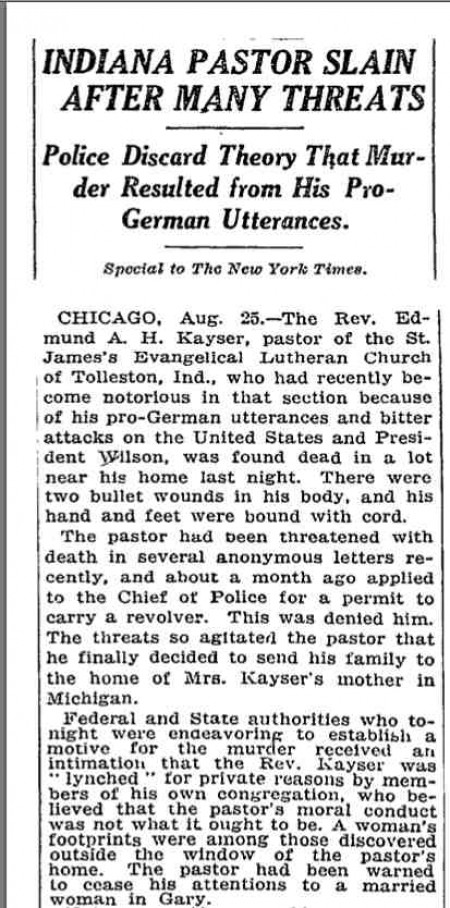
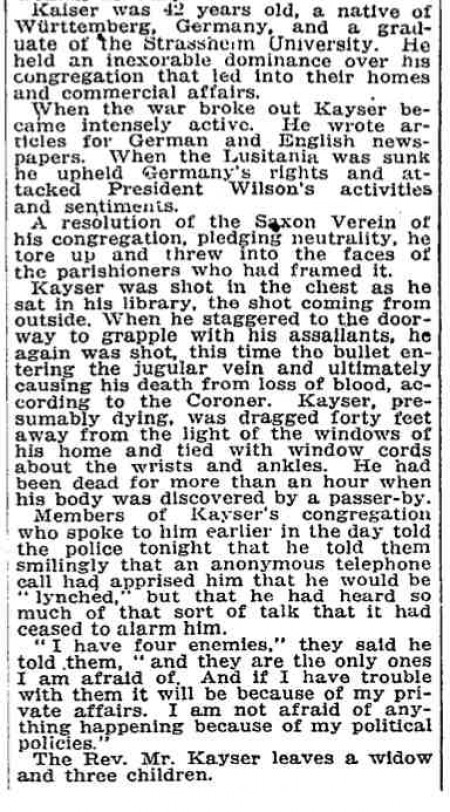
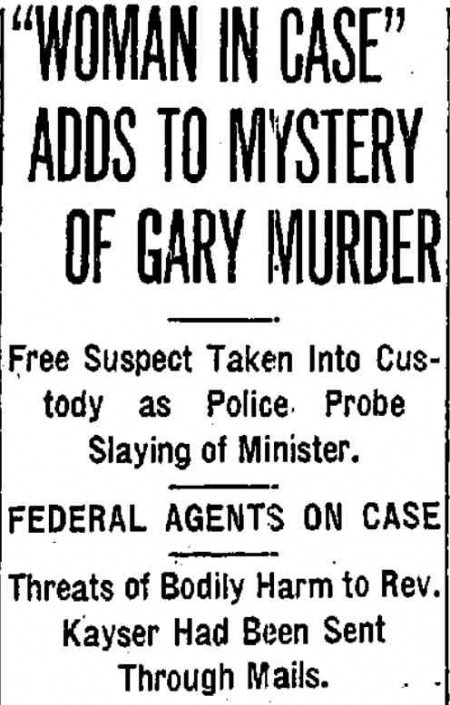
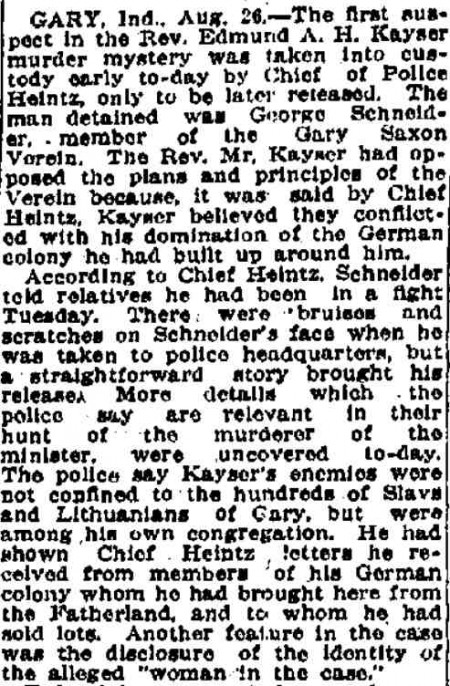
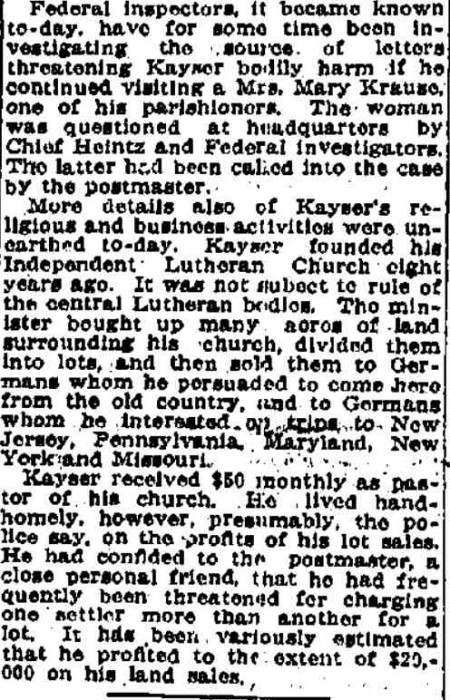
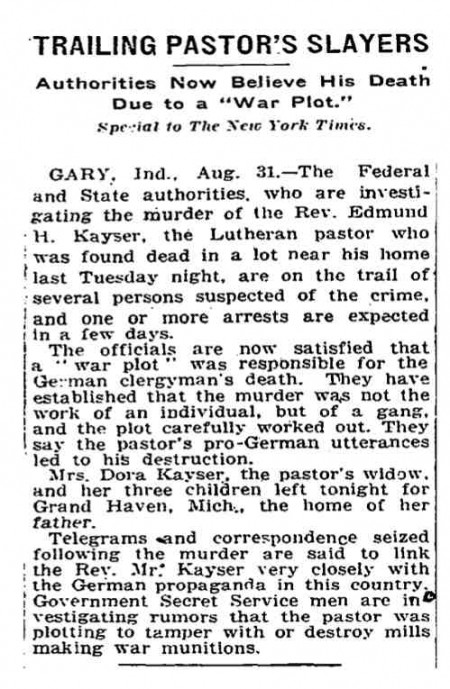
The Reverend Kayser sounds like a real piece of work. German propagandist, adulterer, real-estate conman, and possible saboteur. A man accumulates a lot of possible murderers with that resume.
Bonus points for being named "Kayser" during World War I.
Posted By: Paul - Thu Aug 23, 2012 -
Comments (7)
Category: Death, Real Estate, Religion, Sexuality, War, Weird Names, 1910s
Worst. Realty Name. Ever.

Visit the insane female realtor here.
Posted By: Paul - Mon Sep 13, 2010 -
Comments (4)
Category: Business, Real Estate, Weird Names

| Who We Are |
|---|
| Alex Boese Alex is the creator and curator of the Museum of Hoaxes. He's also the author of various weird, non-fiction, science-themed books such as Elephants on Acid and Psychedelic Apes. Paul Di Filippo Paul has been paid to put weird ideas into fictional form for over thirty years, in his career as a noted science fiction writer. He has recently begun blogging on many curious topics with three fellow writers at The Inferior 4+1. Contact Us |




